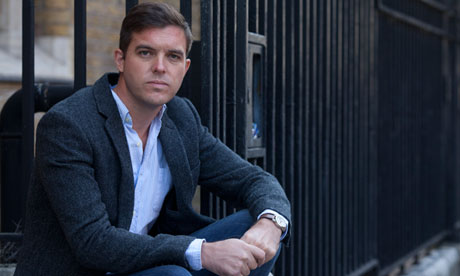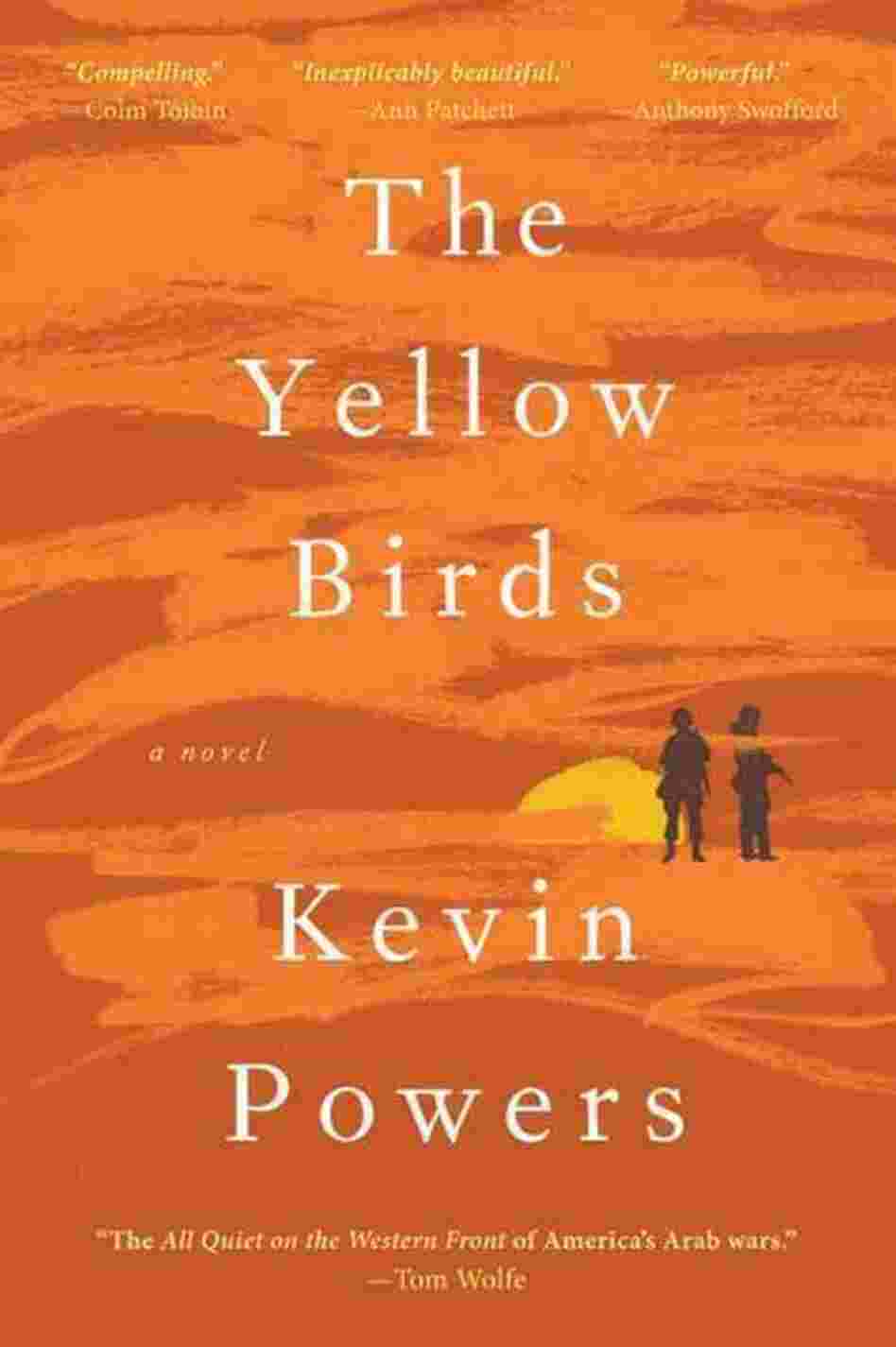Bird Feeders
A review of The Yellow Birds by Kevin Powers
Kevin Powers' highly touted debut novel, The Yellow Birds is one chiefly of contrition. It is a testament to the traumatic guilt which has been thrown like a shroud over the veterans of the Iraq and Afghanistan wars. It seems evident that Powers, a veteran of those conflagrations, has, through this work, unloaded a bit of his own nationally-imposed shame. Though merely conjecture on this reviewer's part, I feel writing, self expression, to be the ultimate therapeutic tool, and hope to see more works, fiction or non, written by these modern warriors.
Like very few writers of war before him (Stephen Crane, Erich Maria Remarque, Tim O'Brien) Powers utilizes brutal description mixed with anodyne lyrical passages to convey the Tricksterism of prolonged combat. Everyday life in a war zone forces the minds of combatants and denizens alike to rationalize the intermittent carnage. The very title refers to a U.S. Army marching cadence that goes:
Regardless of what is just, Private John Bartle is one of those suffering grunts. He, striving for absolution, makes of the reader a confessor. From the get-go, he empowers the war with Gargantuan status:
It's evident that Powers knows his material, having spent time in Al Tafar during the same time frame of which he writes. The work, as much debut fiction, is autobiographical and for this reason it engages and transports the reader, similar to what Karl Marlantes does in his Vietnam epic, Matterhorn. Though Powers first effort is less procedural than Marlantes, less of a strategy lesson (probably due to the absence of strategy in Powers' war, but then again Nam was no stratagem, so to speak). But the ultimate messages of both are the same: War ______ ; fill in the blank with whatever you like as long as it translates to something like "is fucking insane".
As Bartle, with Murph and their NCO Sergeant Sterling in tow, navigates through the craziness, he reflects on the quotidian. Regarding the locals, there is this:
Powers, like some ghost-of-things-to-come, leads us to what we know from the initial pages to be inevitable. Bartle will eventually lose Murph, like one might lose a junkie father. He'll lose him to the normality of home, to the icon of tenderness, to the tenuous verticality of the place they are doomed to inhabit. They will search for him amongst the detritus of war:
~ 4.5 Stars
Like very few writers of war before him (Stephen Crane, Erich Maria Remarque, Tim O'Brien) Powers utilizes brutal description mixed with anodyne lyrical passages to convey the Tricksterism of prolonged combat. Everyday life in a war zone forces the minds of combatants and denizens alike to rationalize the intermittent carnage. The very title refers to a U.S. Army marching cadence that goes:
A yellow bird - With a yellow bill - Was perched upon - My windowsill. - I lured him in - With a piece of bread - And then I smashed - His fucking headAn allusion, on its face, to the artful strategies of dominance, but taken on another level, to the betrayal whether malicious or not of a nation's military troops perpetrated by said nation. The book addresses the question of responsibility. Who should, in the end, suffer psychologically for the premature loss of human life due to martial action? the grunts? the occupants? or the prevailing governments?
Regardless of what is just, Private John Bartle is one of those suffering grunts. He, striving for absolution, makes of the reader a confessor. From the get-go, he empowers the war with Gargantuan status:
While we slept, the war rubbed its thousand ribs against the ground in prayer. When we pressed onward through exhaustion, its eyes were white and open in the dark. While we ate, the war fasted, fed by its own deprivation. It made love and gave birth and spread through fire.The war's the thing, Bartle and his compatriots merely warriors. But before facing Gargantua, he makes the mistake of pledging mortal protection to the mom of an eighteen year-old co-graduate of Fort Dix, for her son, one Daniel Murphy. "Promise that you'll bring him home to me." she asks Bartle at their first meeting in New Jersey. "I Promise." he answers. Two words that would plague him for many years to come. So with Murph strung securely around his neck, Bartle faces the ineluctable madness of random conflict.
It's evident that Powers knows his material, having spent time in Al Tafar during the same time frame of which he writes. The work, as much debut fiction, is autobiographical and for this reason it engages and transports the reader, similar to what Karl Marlantes does in his Vietnam epic, Matterhorn. Though Powers first effort is less procedural than Marlantes, less of a strategy lesson (probably due to the absence of strategy in Powers' war, but then again Nam was no stratagem, so to speak). But the ultimate messages of both are the same: War ______ ; fill in the blank with whatever you like as long as it translates to something like "is fucking insane".
 |
| Kevin Powers: Photograph: Martin Argles for the Guardian |
As Bartle, with Murph and their NCO Sergeant Sterling in tow, navigates through the craziness, he reflects on the quotidian. Regarding the locals, there is this:
Then they’d come back, and we’d start over by waving to them as they leaned against lampposts and unfurled green awnings while drinking tea in front of their shops. While we patrolled the streets, we’d throw candy to their children with whom we’d fight in the fall a few more years from now.Back to the Yellow Birds metaphor, he portends an endless cycle of cruelty, layering his guilt or the suspension of it. Lack of emotional involvement is mandatory to survival in war, as the author makes clear in the preliminary pages. We only pay attention to rare things, and death was not rare. Rare was the bullet with your name on it, the IED buried just for you.Those were the things we watched for. When the company is pinned down on a rooftop with sniper fire, their Iraqi interpreter, who speaks of his old stomping grounds in the neighborhood below, is killed. Bartle and Murph seem only interested in the body count:
“Doesn’t count, does it?” Murph asked. “No. I don’t think so.” “What’re we at?” “Nine sixty-eight? Nine seventy? We’ll have to check the paper when we get back.” I was not surprised by the cruelty of my ambivalence then. Nothing seemed more natural than someone getting killed.Desensitization is a byproduct of the war, but the repressed feelings do still bubble up for our protagonist, albeit if only when AWOL and drunk. And sometimes even the thought of ending it all is fraught with frustration. Our Bartle spills this soliloquy:
You want to fall, that’s all. You think it can’t go on like that. It’s as if your life is a perch on the edge of a cliff and going forward seems impossible, not for a lack of will, but a lack of space. The possibility of another day stands in defiance of the laws of physics. And you can’t go back. So you want to fall, let go, give up, but you can’t. And every breath you take reminds you of that fact. So it goesThat last: a tip of the hat to the anti-war Kurt Vonnegut Jr.?
Powers, like some ghost-of-things-to-come, leads us to what we know from the initial pages to be inevitable. Bartle will eventually lose Murph, like one might lose a junkie father. He'll lose him to the normality of home, to the icon of tenderness, to the tenuous verticality of the place they are doomed to inhabit. They will search for him amongst the detritus of war:
We had looked for him hard, this one boy, this one name and number on a list. As the man pointed, our fears had become facts, our hopes smothered and mute. We had, in a strange way, surrendered. But to what, we did not know. The sound of gunfire could still be heard periodically in the distance. The city would be covered with brass casings. Battered buildings would have new holes. Blood would be swept into the streets and washed into gutters before we were through.In his first novel, Powers pours out his thirty-something years of life on the page. He has said in an interview with the Guardian newspaper that "One of the reasons that I wrote this book was the idea that people kept saying: 'What was it like over there?' It seemed that it was not an information-based problem. There was lots of information around. But what people really wanted was to know what it felt like; physically, emotionally and psychologically...". If this is all he wished to accomplish, he has succeeded. But I think he has also written a kind of love letter to the warriors of his generation, explicating this: the War, writ large, in all its monstrous imposture obscures humanity in its shadow, damages or makes corpses of its young, but in the end you will all be forgiven.
~ 4.5 Stars
- Hardcover: 240 pages
- Publisher: Little, Brown and Company; First Edition edition (September 11, 2012)
- Language: English
- ISBN-10: 0316219363
- ISBN-13: 978-0316219365

Comments
Post a Comment